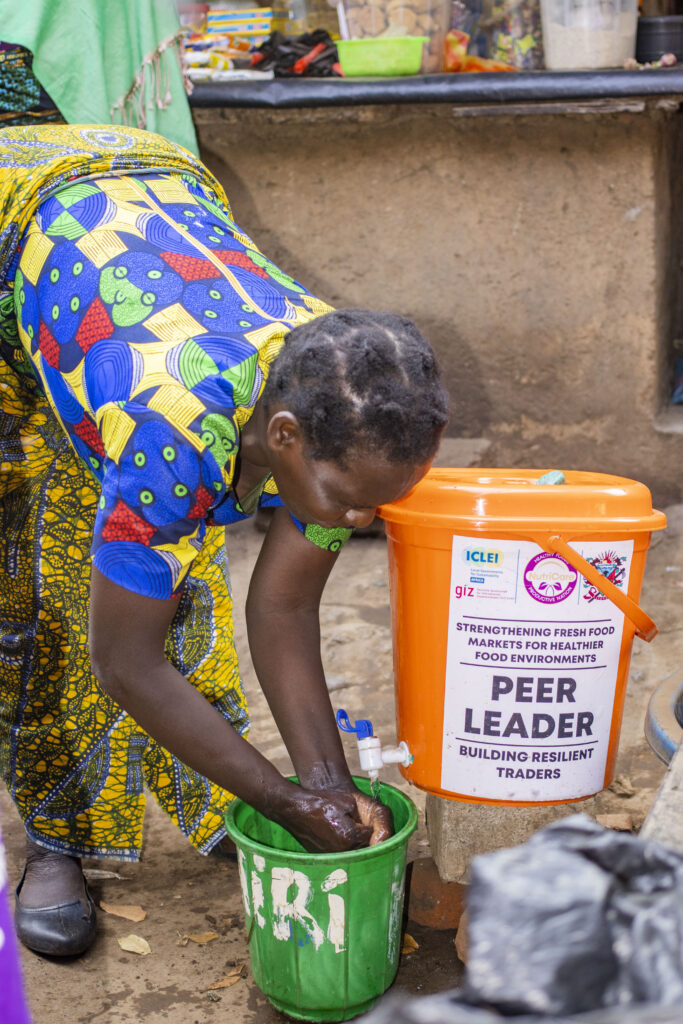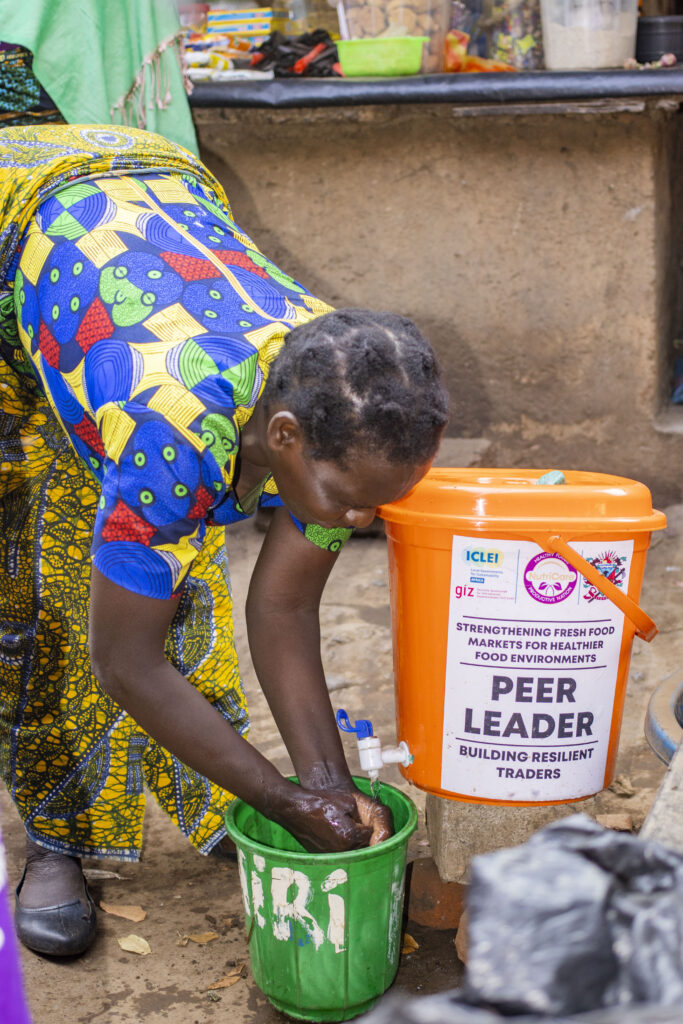A serious challenge, bold action
Malawi’s urban markets are at the frontline of food-borne illness, malnutrition and economic loss. High rates of diarrhoea, cholera and typhoid are linked to contaminated produce and unsafe handling. Market infrastructure is often weak—limited clean water, poor waste management, and little hand-washing capacity—while over 30% of Malawian children remain stunted due to poor diet quality. Vendors lose income from spoiled produce and customer distrust, and cities absorb heavy public-health costs.
Project launch & early milestones
NutriCare, under https://africa.iclei.org/ICLEI Africa with GIZ support, began rollout at Lizulu Market on 15 August 2025.
Key activities so far:
- Baseline assessment completed with over 120 traders interviewed to map hygiene gaps and training needs.
- Learning Kiosk set up in the market with daily demonstrations on hand-washing and safe food display.
- Peer Leader network of 12 vendors (40% women) trained to champion hygiene and record-keeping.
- Over 200 market users have participated in quick “learning-stop” sessions on clean water use, safe storage, and stall sanitation.
Training approach
Using an adult-learning model (Andragogy), trainers move stall-to-stall delivering 30–45-minute micro-sessions supported by flipbooks, visual posters and real-life demonstrations. Early sessions cover hygiene, food safety, clean water handling, and mobile-money basics. Interactive games, stickers, and a “Healthy Stall Challenge” keep participation high.
Impact snapshot
- 80% of peer leaders now demonstrate correct six-step handwashing.
- 50+ stalls have adopted off-ground displays and covered produce.
- Vendors report 20% drop in daily waste from better storage and faster turnover.
Scaling goal
The project aims to reach 900 beneficiaries in three months with measurable improvements in hygiene behaviour, food safety, and vendor income.
NutriCare and partners are proving that food transformation to improve access to healthier diets is possible when markets become centres of learning, clean infrastructure, and community pride. Follow our updates as we move from training to action—cleaner stalls, safer food, and stronger urban food systems for Malawi.


